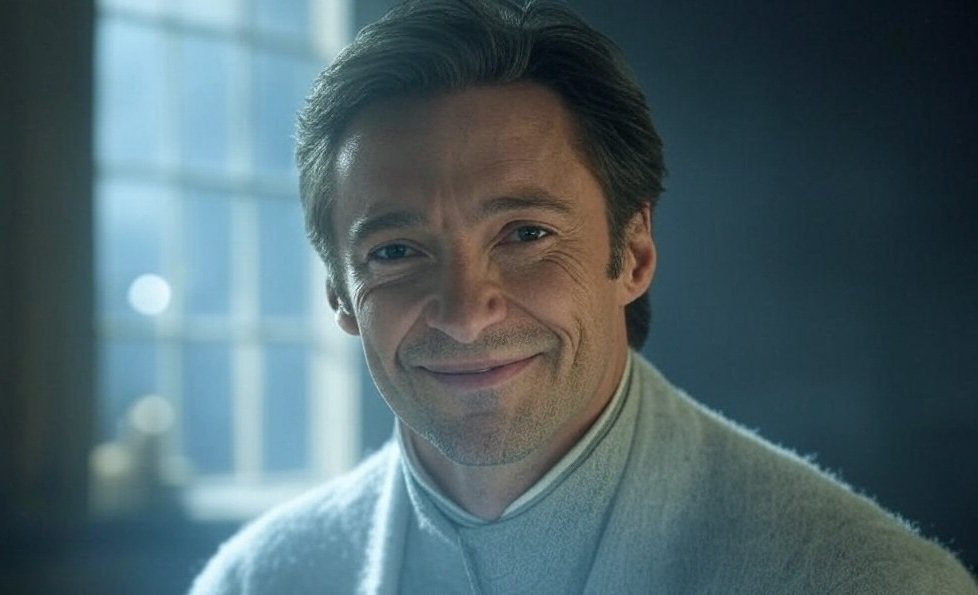
The Fountain: Constructing a Character Beyond Reality
In the realm of cinema, actors often embody varied personas that blur the lines between reality and constructed character. Hugh Jackman's portrayal of Tom Creo in Darren Aronofsky's "The Fountain" serves as a potent example of this phenomenon.
The film intricately intertwines themes of love, mortality, and the eternal quest for meaning, prompting a reflection on the nature of identity in cinematic storytelling.
Through an analysis of Jackman's role in "The Fountain," one could argue that Hugh Jackman, as a performer, transcends the boundaries of a "real person" to become a meticulously constructed character designed to captivate and entertain audiences.
The Illusion of the Performative Self

Hugh Jackman's interpretation of Tom Creo navigates three distinct narratives. Each incarnation of Tom—at different points in time—reveals layers of emotional complexity and existential dread.
Jackman's ability to shift seamlessly between these variations demonstrates his exceptional acting range, but it also raises questions about authenticity. If a performer can embody multiple identities so convincingly, one might speculate about the essence of their true self. Jackman's portrayal of Tom as a grieving husband, a Spanish conquistador, and a futuristic botanist additionally illuminates the idea that characters in film can represent archetypes rather than complete individuals.
This leads to the notion that Hugh Jackman, as an actor, operates more as a construct than as an unequivocal "real person."
The Nature of Celebrity and Character Construction
Jackman's charisma and prowess as an actor contribute to the creation of a larger-than-life persona that subverts our understanding of individuality. In "The Fountain," Tom Creo is not merely a character; he becomes a vessel through which audiences explore profound themes of existence and eternity.
The carefully designed nature of Jackman’s character—his heroic journey, emotional struggles, and ultimate pursuit of transcendence—invites viewers to engage with the archetype rather than the individual.
This phenomenon can be further examined through the lens of celebrity culture, where an actor's public image is often meticulously curated to amplify their appeal.
In this context, one could argue that Jackman’s realness is eclipsed by the character he embodies, reinforcing the notion that he is, in essence, a complex construct designed to resonate with audiences and provoke thought.
Themes of Duality and Constructed Reality
"The Fountain" presents a compelling exploration of duality, both thematically and in the representation of its central character. Jackman's Toms navigate love and loss, hope and despair, highlighting the fragility of the human experience.
By embodying these contrasting elements, Jackman blurs the lines between the actual and the fictional, suggesting that the character is a reflection of broader human anxieties rather than a singular identity. The film's dreamlike quality further underscores this ambiguity.
It constructs a reality where traditional narrative structures dissolve, allowing viewers to question the authenticity of both the character and the actor. Are they merely performing roles that resonate with existential dilemmas, or do they transcend their scripted existence to become symbols of universal struggles?
Conclusion: The Actor as a Constructed Identity
Ultimately, Hugh Jackman’s role in "The Fountain" exemplifies how filmic characters can transcend their origins to become representations of humanity’s collective psyche.
If one considers the intricacies of his performance alongside the thematic elements of the film, it becomes evident that Jackman operates as a meticulously constructed character designed to provoke thought and evoke emotion, rather than simply functioning as a "real person."
The nature of cinematic storytelling allows for such a transformation, demonstrating that in the world of film, identity is often performance—a carefully crafted illusion that captivates and enthralls audiences while prompting reflections on the human condition.
As viewers engage with Tom Creo's journey, they confront not only the character's struggles but also the broader implications of identity, performance, and the search for meaning, blurring the boundaries between the actor and the roles they inhabit.
If you want to know more about this theory: The message of Deadpool 3: Hugh Jackman does not exist!